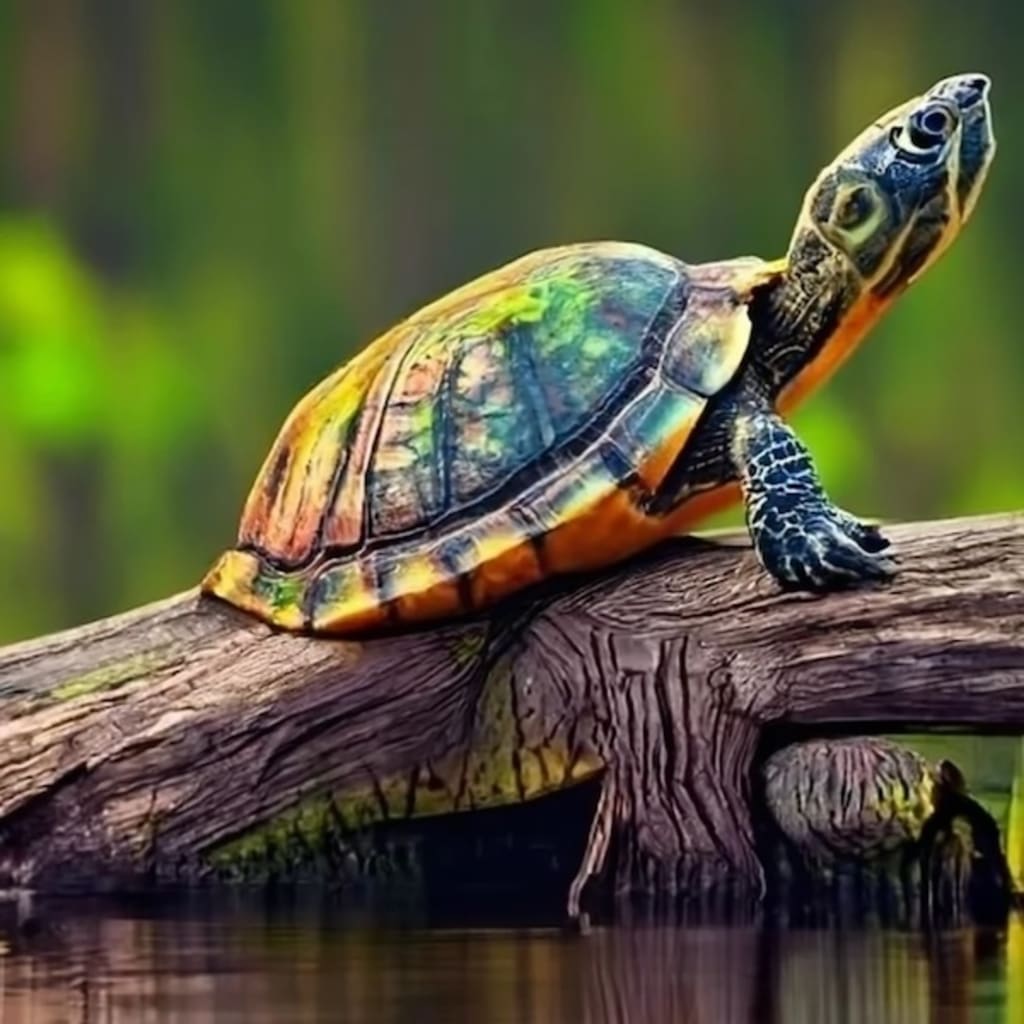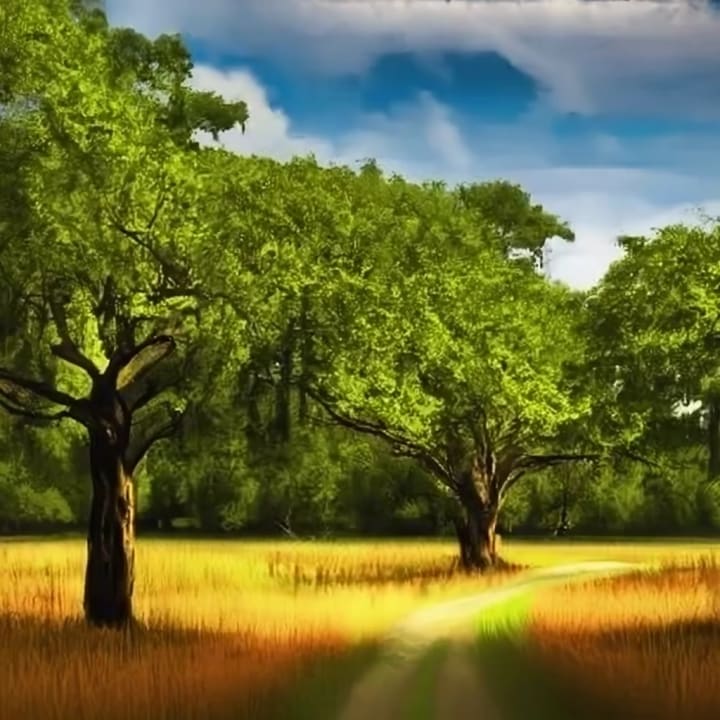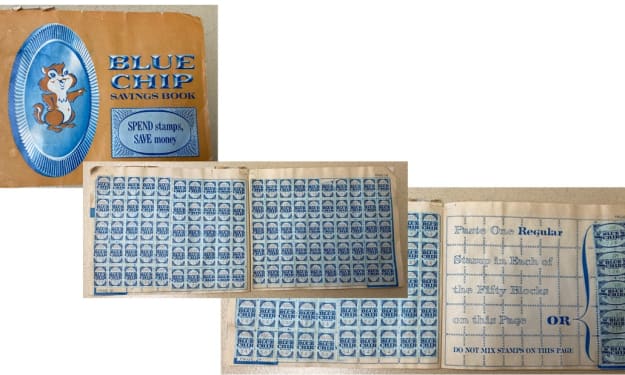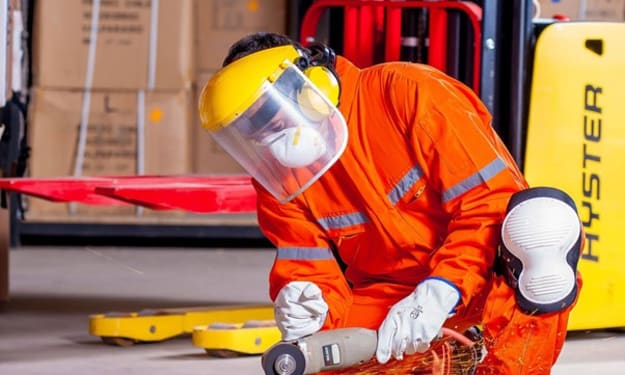That time when Papa and I went fishing - Part 1 of 2
The legacy of Luksi

My grandfather, Papa, has been gone from this life for many years. My mother is now in her eighties, and we talk about long-ago visits to Louisiana, where Ma grew up, more than we talk about our current days in California, where my sisters and I grew up. One of our family visits to Louisiana stands out in my memory — that time when Papa and I went fishing. Our whole family went fishing many times over the years, but this one time was a pivotal experience in my young life.
* * * * *
I was about 8 years old. We were visiting Papa in the small country town in Louisiana where my extended family has been for generations, except for my generation. We lived in California — Ma, my three sisters, and me. My name is Luksi. We made the 3-day drive to Louisiana every couple of years, usually in August. This was our first visit since Ma’s mother, Mameé, passed away two years earlier. Even with all the nearby relatives coming and going all the time, and working on carpentry projects all over St. Philomena Parish, Papa was lonely.
“Who wan’ walk to the Post Office with me?” Papa asked, the day after we arrived. We all said, “We do, we do!”, and we tumbled down the stairs from his front porch to the gate that led to Pecan Road. “Bon, allons,” Papa said as we waved bye to Ma. Ma was sitting with two cousins in the shade of the huge oak tree, laughing and conversing in their lilting Creole French. We kids didn’t know much Creole French, just a few words here and there, because we were growing up in northern California where the languages around us were English and Spanish. But our Louisiana cousins taught us a few words every time we visited, and we knew the informal expressions that Ma used daily.
Pecan Road was lined with pecan trees. It was summertime, so the pecan trees were full of green leafy branches, thousands of pecans in their leathery husks, and chattering squirrels trying to figure out how to get into those husks before the nuts started falling in the autumn. Papa, Mameé, and dozens of other Black families along this country road planted these pecan trees long ago, when Ma and her cousins were little. Many times, Ma had told us the stories of harvesting pecans each autumn, with all the big kids climbing in the trees to shake the stubborn pecans loose and the little kids running around to pick up every pecan from the ground. The families would gather the pecans into large burlap sacks, and load those into pickup trucks. Then Papa and his brothers would drive around to the factories to sell those pecans for the community. Each family would keep a few sacks of pecans to make pecan candy and pecan pies — some to keep and some to sell. The families used the money from pecans and other autumn crops to pay for things that were difficult to make or grow themselves. They paid for things like shoes, coats, lumber, nails and roofing material. And they paid a salary for the teacher at the 2-room schoolhouse for Black children, where Ma, her cousins and friends all learned to read.

On this day, however, my sisters and I were the next generation in our Creole family tree, and we were happily heading to the Post Office with Papa. We walked along Pecan Road toward Main Street, where the brick Post Office building stood at the center of town. The Post Office accepted general delivery mail for everyone in town. As we walked, my sisters ran ahead to the church playground, to see if we’d meet any of our young cousins playing there. Our church was on Pecan Road, about half a mile before Main Street. It was St. Anne’s church, another part of our family history. St. Anne’s was the Black Catholic Church that Papa and many of the other Black adults and teens had built the year after planting all the pecan trees. Before building St. Anne’s, the Black Catholic people sat in a section of benches in the back of the White Catholic Church, St. James, on the other side of town. History was complicated, but what we knew as next-gen kids was that St. Anne’s was our church and we were always welcome there. The last time we’d been at St. Anne’s was for Mameé’s funeral, and we all sat in the front row.
I reached for Papa’s hand as we walked. “Are you lonely, Papa?” He was so tall and lanky, every time I looked up at him it was as though the sunshine filled the sky above his head. He smiled down at me. “A lil’ bit, Lil’ Bit,” he teased, knowing I would grin. He had nicknames for all of us, and I thought my nickname “Lil’ Bit” was the best.
“Is Mameé happy in heaven?” I asked.
“Mameé is happy everywhere, Lil’ Bit. She’s all around us, like a butterfly going from flower to flower,” he replied. We walked some more, in easy silence.
“You remember Mameé loved to go fishing?” Papa eventually asked me.
“Yes, catfish was her favorite, right?” I asked. He nodded, giving me another smile that made me glow.
“Tomorrow morning, early, I’m going fishing. Not at the pond where we fished before. This time I’m going to the swamp. You wan’ go with me?” he asked.
“Yes!!! Yes, yes, yes!” I jumped up and down. “Just me, or all of us?”
“Just you, this time,” he replied, solemnly. He added, “It’ll be very early, before the sun’s up….”
“Yes, yes, I can wake up early!”
“There might be a lot’a mosquitoes…”
“That’s ok, we’ll put on the peppermint oil.”
“We won’t eat breakfast before we go, just bring it with us in the lunchpail…”
“I can help Ma fix the lunchpail tonight before we go to bed!” This was going to be so much fun. “Will we use hand-signs when we’re out fishing, Papa, so we can be very quiet?”
“Well, we’re going to ‘Chafalaya swamp. It’s quiet over there,” Papa replied. “But we might see an alligator or two. Then what will we do?”
“If we see an alligator we just clap our hands and it’ll swim away!” I said with certainty. “I’m a big girl now, Papa, I remember a lot of things.”
He looked at me thoughtfully. “I believe you are a big girl, Luksi. I believe you are.”
* * * * *
©2024. Luksi Bayou. All rights reserved.
About the Creator
Luksi Bayou
Luksi Bayou (she/her) writes fiction inspired by lived experiences. Sometimes she also writes about data. More stories on Medium: https://tinyurl.com/ys27mm7x
Enjoyed the story? Support the Creator.
Subscribe for free to receive all their stories in your feed. You could also pledge your support or give them a one-off tip, letting them know you appreciate their work.






Comments (3)
I love true stories and this one kept me engaged. Family is so important. Thank you for introducing us to members of your family and for sharing this story.
Interesting and delicious content. Keep posting more
Wow! You came barreling through the Vocal gate with a most admirable first story. This is so beautifully written and so touching. I am so happy to meet you dear Luksi. I love your story. Your family sounds wonderful. Craiyon.com looks interesting. Mamee would be proud.